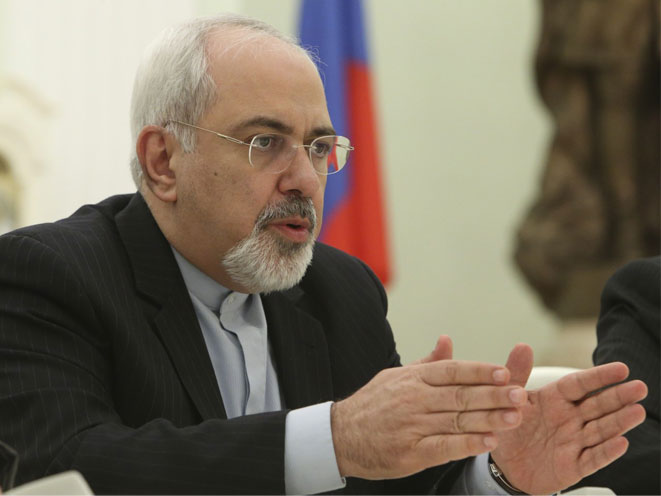|
Iran’s Foreign Minister Mohammad Javad Zarif has warned that the spread of extremism and terrorism in the Middle East region poses a threat to the entire world. |
 “What is clear is that extremism and sectarianism have spread in our region and this phenomenon knows no boundaries,” Zarif said in a joint press conference with the visiting Belgian Foreign Minister Didier Reynders in Tehran on Sunday.
“What is clear is that extremism and sectarianism have spread in our region and this phenomenon knows no boundaries,” Zarif said in a joint press conference with the visiting Belgian Foreign Minister Didier Reynders in Tehran on Sunday.
“So, countries which are supporting these [terrorist and sectarian] measures and are causing many problems for their neighbors should know that this phenomenon will also reach their shores,” the Iranian minister added.
Extremism and terrorism have turned into a major challenge for regional countries, he said, calling for joint efforts and cooperation to fight the ominous phenomena.
Zarif cited the recent attacks against Iran's missions in the Lebanese capital, Beirut as an example of escalating terrorism in the region.
Two powerful explosions struck a busy area in south of Beirut near the Iranian cultural center on February 19, killing at least five people and wounding dozens.
Earlier, on November 19, 2013, bombings outside the Iranian Embassy in Beirut’s southern neighborhood of Janah left at least 25 people dead, including six Iranian nationals, and wounded over 150 others.
The Abdullah Azzam Brigades claimed responsibility for both attacks.
Pointing to the ongoing nuclear negotiations between Iran and six major world powers, Zarif said a favorable atmosphere had been created following the landmark interim deal dubbed the Joint Plan of Action, adding that Tehran would continue with negotiations to remove any pretext for sanctions against the country and prepare the ground for foreign investment.
“Iran’s doors are open to trade with the world and all our European friends should know that a good environment and stable conditions have been prepared for investment in the country,” the Iranian minister stated.
Iran and the five permanent members of the UN Security Council -- Russia, China, France, Britain and the US -- plus Germany clinched the interim deal in the Swiss city of Geneva on November 24, 2013. The deal took effect on January 20.
Under the Geneva deal, the six countries undertook to provide Iran with some sanctions relief in exchange for Iran agreeing to limit certain aspects of its nuclear activities during a six-month period. It was also agreed that no nuclear-related sanctions would be imposed on Iran within the same timeframe.
The Belgian foreign minister, for his part, said Iran is capable of playing an important role in regional and international issues.
He also expressed support for a political solution to the crisis in Syria and emphasized that Iran can play an effective role in this regard.
Reynders said that Belgium has plans to prevent the infiltration of foreign militants into Syria, but described such a task as “difficult.”
http://www.presstv.ir/detail/2014/02/23/351932/terrorism-knows-no-borders-iran/
